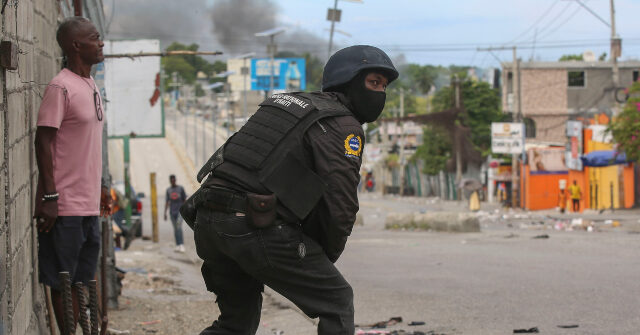Recent events in Haiti depict a rapidly deteriorating security situation in Port-au-Prince, as violence escalates and gang presence has surged dramatically following the dismissal of interim Prime Minister Garry Conille. Hundreds of families have packed their belongings and fled their homes, many moving from previously secure neighborhoods as gang confrontations with police unfold. Since Sunday, more than 4,300 residents have been displaced, according to the United Nations’ International Organization for Migration (IOM). The instability triggered by Conille’s removal has resulted in gangs tightening their grip on the capital, disrupting transportation—including the shut down of Toussaint Louverture International Airport—and emboldening criminal elements that are traditionally faced with resistance.
The uptick in gang activity is alarming, with the United Nations highlighting that an estimated 85 percent of Port-au-Prince is now under the control of various gang coalitions, which have effectively declared themselves as the new governing authority. Eyewitness accounts detail scenes of panic as families flee their neighborhoods under threat, often being forced out by gangs that go as far as burning their homes. The clash between gang factions and law enforcement has intensified, displaying a worrying trend of the police being overpowered and ineffective in maintaining order. Residents have voiced their fear and frustration, emphasizing a loss of faith in governmental authority. The desperation of the situation was apparent as countless individuals were seen leaving their homes with only suitcases in hand, fleeing to avoid the violence and chaos.
Amidst this turmoil, the newly appointed interim prime minister, Alix Didier Fils-Aime, has faced criticism for his silence regarding the rampant violence and instability gripping Port-au-Prince. While he has promised to restore security and stability to the nation, there are doubts about whether his administration can effectively counter the gang influence that has grown in recent days. The power dynamics have shifted heavily in favor of gang leadership, with figures such as Joseph Wilson, known as “Lanmou Sanjou,” asserting their control over the streets and warning residents of dire consequences should they disobey their rules. His message underlines the alarming reality that gangs are stepping in to fill the power vacuum left by a faltering government.
Medical humanitarian organizations, such as Doctors Without Borders (MSF), are struggling to operate amid the escalating violence. MSF has reported instances of staff being attacked by both police and vigilante groups, mistaking patients for gang members—leading to tragic outcomes, including executions. This stark revelation raises profound concerns about the ability of NGOs to provide essential services in a territory increasingly marked by fear and violence. Christophe Garnier, head of MSF’s mission in Haiti, called the recent events a “shocking display of violence,” highlighting the grave challenges that humanitarian agencies face and underscoring the critical needs of the Haitian population.
As tensions simmer, transitional council president Leslie Voltaire has acknowledged the chaos instigated by Conille’s ousting but holds optimism that Prime Minister Fils-Aime can restore some modicum of order. He suggested that the present gang activity represents a test of limits—an assertion that they are trying to gauge the response (or lack thereof) from authorities and potential international interventions. Observers, such as Wolf Pamphile from the Haiti Policy House, speculate that the gangs are openly demonstrating their power in anticipation of U.S. reactions, which have historically played a pivotal role in Haitian political dynamics. The complexities intertwining local governance and international relations continue to shape the way forward for Haiti.
The U.S. State Department has expressed growing frustration with the Haitian government’s ability to stabilize the situation. It criticized the leadership for being ineffective and unable to move toward constructive governance. The State Department’s call for a clear action plan from the new prime minister indicates a sense of urgency regarding the wellbeing of the Haitian populace and highlights acute needs that require immediate address. They urge the transitional government to prioritize the interests of the people instead of personal political conflicts. As the violence unfolds, the path toward a functional governance structure remains fraught with challenges, necessitating both local and international collaborative efforts to navigate the looming crisis in Haiti.
In summary, the current state of affairs in Haiti, characterized by rampant gang violence and political upheaval, paints a grim picture for its citizens. With the gangs seizing more territory and asserting control, many residents find themselves in an increasingly precarious situation. While the new administration has the potential to restore some semblance of order, the effectiveness of its governance remains to be seen amid looming fears and the undermining presence of gangs. The situation underscores the critical need for immediate and effective humanitarian aid, as well as a re-definition of power relationships within the nation and in the context of international engagement.

